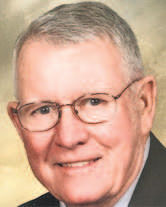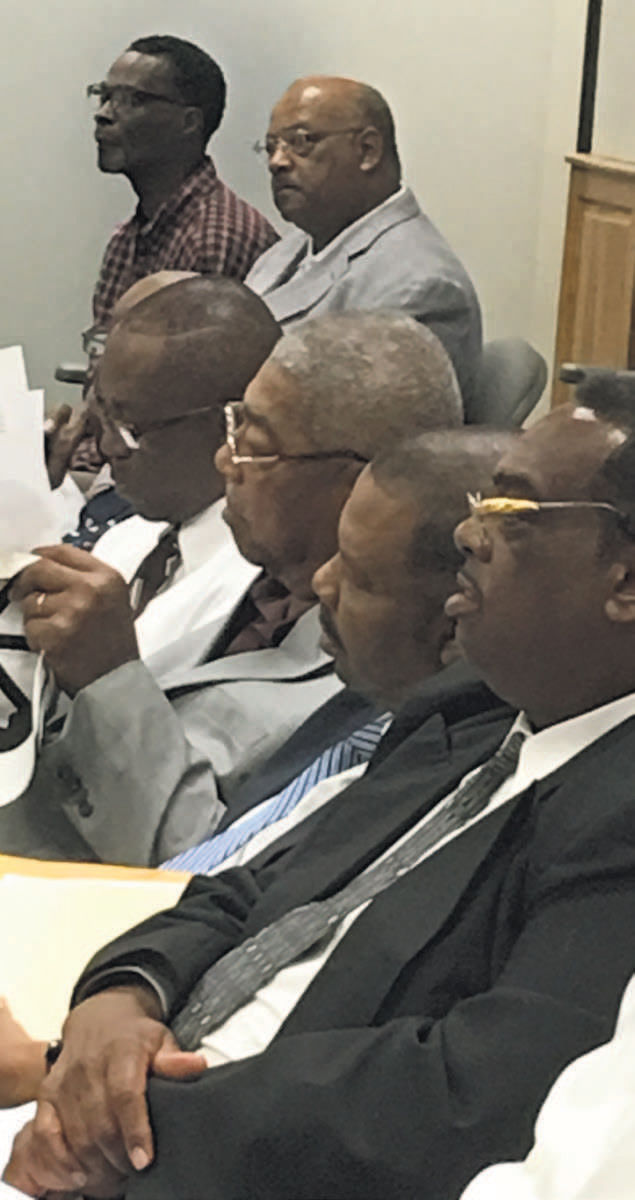3,000 lose power in Houma
March 17, 2016
Arch Bell
March 18, 2016A delegation of local elected representatives – all of whom represent districts whose majorities are people of color – plans to consult with state officials to determine whether a federal lawsuit centered on how Terrebonne Parish selects its judges can be settled or otherwise handled in a manner most favorable to the parish.
The Terrebonne Parish branch of the NAACP brought the case in 2014 against former Gov. Bobby Jindal and former Attorney General Buddy Caldwell, alleging that the parish’s at-large scheme of selecting its five district court judges violates Section 2 of the U.S. Voting Rights Act. Scheduled for trial in March, 2017, the case is being heard by U.S. District Judge J. James Brady
The offer, made by Parish Councilman John Navy and approved by all members, came during an emotional portion of a parish council meeting during which discussion began, but was then shut down by parish attorney Julius Hebert, who told members it should be talked about in a secret session, likely to be scheduled for the council’s March 23 meeting.
Louisiana’s open meetings law authorizes secret meetings – officially called executive sessions – when a parish council seeks to discuss pending litigation. The parish is not required to meet in secret, however, and can opt for the discussion to be held before the public. Hebert had suggested that Navy and the other delegation members consider their quest for information for a time after he has had an opportunity to present Dove’s position.
“We have the blessing of the council to try to meet with the attorney general and the governor’s office, to try to find out what their position is,” Navy said. “We want
to see if we can come to some medium ground We have a lot of stuff we need to do in this parish and I would like to get this over with.”
NAACP OBJECTS
Navy, along with Council-woman Arlanda Williams and Terrebonne School Board members Greg Harding and Roosevelt Thomas, are the officials authorized to make overtures for settlement to the state.
Last month, at Dove’s request, Hebert filed a motion by the parish government, which was not a party to the case, to be brought in as an “intervenor.” An intervenor is a party who, while having neither brought nor named in a suit, claims interest in the matter and wishes to become part of it on either the plaintiff or defendant’s side. In this case the parish would intervene on the side of the state entities, essentially making it an additional defendant. The decision to allow the parish into the suit must be made by the judge. The state has no objection but the NAACP Legal Defense Fund, which represents the plaintiffs, plans to fight the parish’s attempt. The litigation, said NAACP counsel Leah Aden, has gone on too long for a third party to intervene.
Gov. John Bel Edwards, who inherited the case from his predecessor’s term in office, has his staff looking into it along with many others to determine if the state wishes to continue fighting it. Matthew Block, Edwards’ chief counsel, confirmed that the case is among those under review. He acknowledged that in any situation, it is more difficult to exit litigation in which one is named as a defendant, and far more involved than making a decision to drop a suit as a plaintiff.
“This is one of the many cases that we are trying to get a hold of and understand exactly the status and the issues and what our plan is going to be, going forward,” Block, an attorney based in Thibodaux, said. “For this case. I am not exactly sure what the remedy would be if the governor wished to do that.”
5 SEPARATE DISTRICTS
Dove maintains that one option presented as a solution by the NAACP – carving up the parish into five separate judicial districts where voters would only choose one candidate for each – is not viable to him. Three of the parish’s sitting judges live in the same general neighborhood, and might end up ineligible to continue serving if that solution is chosen by the court, Dove said. In court papers now under consideration, Dove maintains that the parish has a stake in the solution, because of its mandated financial support of the judicial system.
“All I want is a seat at the table,” Dove has repeatedly stated. At last week’s meeting, he stated that he did not want lawyers in Washington, D.C., to make decisions that will directly affect how Terrebonne Parish’s judicial elections are handled.
Legal experts say that while it would not be unusual for an entity like the parish to enter litigation on a Voting Rights Act matter, consultation with the parish would still likely occur if state officials decide in favor of a settlement.
John Navy hopes that he and other local officials can help the state develop a workable solution that will short-circuit a need for expensive litigation involvement. He is personally opposed to splitting up the 32nd Judicial District, which includes all of Terrebonne and excludes any other parishes in its boundaries, into five separate sub-districts, as does Dove. Navy would not be averse to a scheme whereby the current minority districts of the parish council – his and the one represented by Williams – were to stand out as a combined district on their own.
Parish government has been officially silent on the question until now; If there is a desire by the state to settle it would likely come in the form of a judicial order agreed to by both sides, which would include an acknowledgement that the method of selecting judges violates the Voting Rights Act, with a solution agreeable to all parties. If a proposal for agreement is rejected by the plaintiffs, the suit would likely continue toward trial.
CHARTER ISSUES
The matter was not on the agenda for last week’s meeting. But a number of citizens had come to speak out against the parish involving itself in the suit, which forced some discussion. The manner in which Dove has officially approached the suit has been below the public radar. He never sought the approval of the council nor had any discussions with its members as to whether it was a good idea to do so. Dove, who vocally opposed a legislative bill that would have created a minority sub-district in the parish in 2011, said his desire to have the parish intervene is based on his disagreement over the five-district solution.
“If it’s decided we’re going to have these five seats, we want to know what’s going on,” Dove added. “We’re not suing the NAACP. We’re not doing depositions. When it comes to court, it will be decided. It is not a white and black issue. It is our judicial system…. I have a duty as parish president to protect this. I have to protect the judicial system of Terrebonne Parish.”
Unresolved – and so far unasked by council members – is the question of whether Dove can unilaterally insert the parish into an on-going federal suit, without their express approval. No such authority appears granted in the parish charter.
The question is a complex one, and may require an attorney general’s opinion for an unbiased answer. No such opinion has been requested by the council, however.
CONTENTIOUS SPEECH
The federal Voting Rights Act, as interpreted by courts and agreed to in various consent decrees between opposing entities – can be violated in at-large voting schemes, where minority votes don’t really count.
Jerome Boykin, president of the Terrebonne NAACP, has pushed for a change in Terrebonne for nearly two decades, but met strong resistance from the sitting judiciary, the state and the legislature.
He spoke against Dove’s attempt to involve the parish in the suit his organization has brought, alleging that the action would bankrupt the parish, in the same manner that Gov. Bobby Jindal allegedly came close to bankrupting the state. While most people “run from lawsuits” Dove “wants to put the parish in a lawsuit that can cost millions of dollars,” Boykin said. “I can assure you that we are prepared to take this case to the United States Supreme Court.”
Another speaker, the Rev. Raymond Brown of National Action Now, a New Orleans based civil rights organization, blasted Dove and the parish government in general for not supporting the minority district concept forjudges.
Both Navy and Williams said they were offended by Brown’s tone, and he was told to simmer down. Brown objected to the interruptions, and said that if the council members did not oppose Dove’s efforts, they were “cowards.”
Dove, as well as some of the parish’s judges, have suggested that Boykin’s attempt to have black people in Terrebonne elect “a candidate of their choice” is in reality an attempt for Boykin to see judicial candidate he himself favors to get a chance to wear robes. Boykin has categorically denied such claims.
Former Parish Councilman Alvin Tillman told council members that the parish could still have its say, by filing a brief in the case as a “friend of the court,” which he estimates would be far less expensive than entering the litigation as an intervening party.
NAACP President Jerome Boykin along with board members and supporters await discussion of Terrebonne Parish President Gordon Dove’s decision to have the parish enter federal litigation seeking a change to how judges are chosen.
Parish attorney Julius Hebert whispers to Parish President Gordon Dove during the March 9, 2016 Terrebonne Parish Council meeting.










